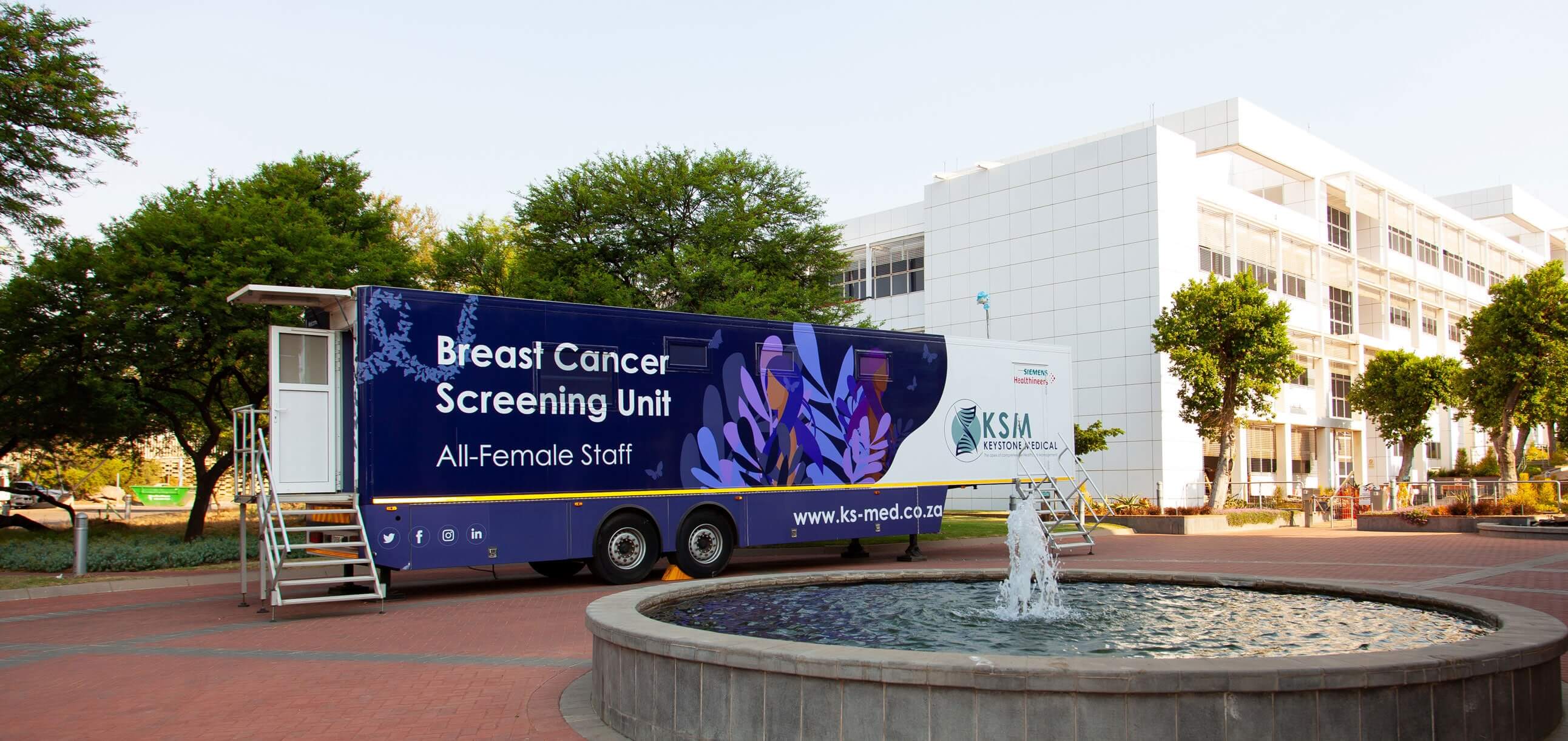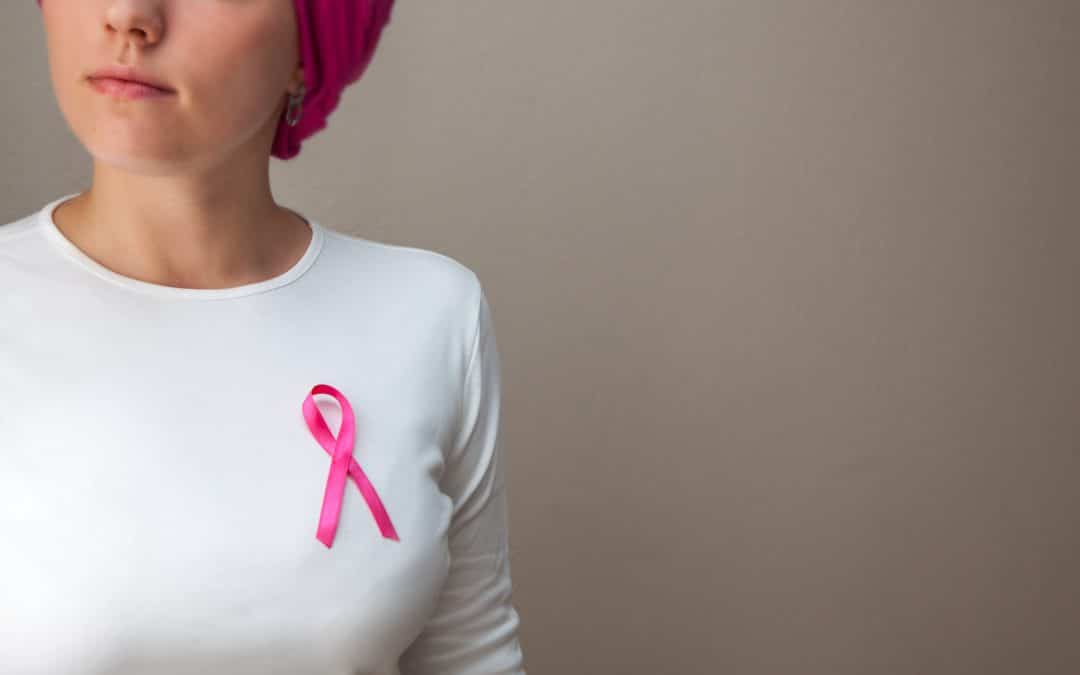Radiology Group, Keystone Medical, says perceptions or misinformation around breast cancer screenings are deterring many women from going for an annual mammogram or breast sonar.
With the world observing Breast Cancer Awareness Month in October,
Radiologist, Dr Nikoli van Zyl, says it’s vital that women are screened regularly to reduce the risks of this life-threatening disease. She says mammograms are capable of detecting signs of breast cancer before symptoms occur.
‘A mammogram can help detect breast cancer before physical symptoms develop by locating tumors that are too small or too deep to be found by breast self-examination. Yet, some women don’t get this lifesaving test when they should due to a number of reasons such as preconceived notions and misinformation,’ she says
Nearly one in eight women will be diagnosed with breast cancer at some time during their lives. Van Zyl says considering these numbers, it may be surprising that only 67 percent of women older than 40 reports having a mammogram within the last two years. Van Zyl says some of the top reasons why women avoid mammograms include:
I’m afraid a mammogram might hurt:
With the recent transition to digital mammography, discomfort levels are reduced. Keystone Medical is especially mindful when it comes to making patients comfortable during mammograms. The modern equipment contains software which limits the level of compression, and the procedure should not be a painful experience. The level of experience of the personnel are pivotal in reducing discomfort and at Keystone we pride ourselves on highly skilled individuals which will perform your Mammogram with virtually no discomfort.
Nobody in my family has had breast cancer:
About 75 percent of breast cancers are found in women with no family history of the disease.
My doctor never referred me for a mammogram:
Discuss your options with your doctor and ask for a referral or schedule an appointment for yourself.
What if they find something during a screening:
This anxiety is completely normal, but there is a good reason to put these worries aside and follow through with the procedure. First, not all abnormalities found during an exam indicate breast cancer. Also, early detection is vital to survival. Detecting cancer during the initial stages offers women a five-year survival rate of 98 percent. At Keystone we will arrange for the patient to undergo additional investigations, such as a biopsy, at one of our facilities under the guidance of our specialist Radiologists.
Only older women need mammograms:
A mammogram is recommended annually for women starting at age 40 and then every two years from ages 50-74. However, women with a family history of breast cancer or other risk factors may need to be screened earlier.

‘These misconceptions should not deter women from having their annual screening mammograms. They should be set aside in order to avoid being diagnosed with breast cancer in its late stages, so you can live a long and healthy life,’ van Zyl explains.
Van Zyl says the Covid-19 pandemic has also had an adverse effect in that that there has been a drastic decline of routine screening mammograms reported around the world.
‘Many women did not undergo their regular Mammographic screening because they were afraid of contracting Covid or wanted to avoid placing extra strain on medical facilities.
Experts, however, predict this will lead to a spike in later cancer diagnoses, as many women who missed their mammograms have been living with undetected breast cancer,’ van Zyl says.
Another key determining factor for low levels of regular screening is a lack of access to screening facilities in many towns and cities. Keystone Medical is, however, actively changing lives and giving women in communities around the country access to its radiology services at several practices and via its state-of-the-art Mobile Breast Cancer Screening Unit. The unit is deployed throughout the year to provide women with the opportunity to go for a mammogram and breast ultrasound in a safe and convenient, out-of-hospital environment.
‘Over the last 18 months we have visited several towns around the country with our unique mobile unit, aiming to make mammographic and breast sonar screenings accessible to all women in a convenient and save out-of-hospital environment. We have just returned from a very successful deployment in Limpopo and will spend the bulk of October in the Garden Route,’ van Zyl explains.
The mobile screening unit is equipped with state-of-the-art mammogram and breast ultrasound modalities. It focusses on patient education, comprehensive evaluation and patient-centered experiences, as well as elevating the detection of breast cancer to the highest international standards. Van Zyl says the mobile unit is operated by female staff with the sole objective of making the experience as convenient and comfortable as possible for patients.

‘Patients receive individual attention from our professional medical staff and receive feedback immediately following their investigations. Patients also have direct interaction with the reporting radiologist. We are very passionate about this project and know that many lives will be impacted by creating awareness of early diagnosis and treatment,’ Van Zyl says.
To make an appointment for the Garden Route Breast Screening initiative, please book online: https://calendly.com/ks-med or call 087 055 0587 (Option 8)
Van Zyl says this October they are also placing the spotlight on a new national campaign, aimed at motivating women of all ages to prioritise their health trough regular annual screening. Van Zyl says the Screen Her Save Her movement is based on the premise that early detection through screening is critical.
‘Despite awareness around the disease, the bulk of women in South Africa is not aware of the importance of regular screening. The Screen Her Save Her movement wants women to commit to annual breast screenings and to motivate their female friends and family to do the same. We are almost operating on a pay-it-forward system where we encourage women to share their experiences and knowledge with those around them, creating a rippling effect.’
Van Zyl says women can join via the website or Facebook links: https://ks-med.co.za/screenhersaveher/ and https://www.facebook.com/groups/screenhersaveher where they will receive facts about how to look after your physical and mental health, as well as the science behind treatment options and procedures. Members will not only receive critical information but will also be able to ask questions and receive feedback from professionals and other members.
‘Whether you’re a survivor of breast cancer, a supporter of the screening movement, a caregiver or a friend of a loved one that was diagnosed with cancer, this group will be suited for you. You will receive regular updates via the Facebook group and newsletters, dealing with important topics and discussions. Here you will also find a strong support group for your journey,’ van Zyl elaborates.
Van Zyl says topics under discussion will include treatment options, how to boost your immune system and much more. She says going forward, the movement will also appoint ambassadors, consisting of mainly passionate volunteers, guided by professional medical staff, who will drive the conversation.
Testimonials of Patients
‘I received my first mammogram at the age of 47 and I was extremely nervous before the appointment, especially about the outcome. However, from the moment I walked in I was met with reassuring professionalism and could even engage with the radiologist directly. I am totally converted to go for my annual mammogram from now on.’
Marietjie Steenkamp, Mookgophong
‘I was hugely impressed with the service I received and the friendly ladies working at the mobile unit. I felt comfortable in the environment away from a hospital and I will be back next year.’
Female Patient, Bela Bela
‘I want to thank the staff who assisted me, they made me feel comfortable and at ease, and explained the whole process to me. It was not the nightmarish experience I thought it would be.’
Female Patient, George
‘What a wonderful experience to be treated so professionally. The fact that the mobile unit ensures a safe environment gives you peace of mind amid the Covid-19 pandemic. I will definitely make an appointment again.’
Female Patient, Riversdale
We offer these services at most of our branches:
For more information on imaging services, reach out to Keystone Radiology at 087 055 0587 or info@ks-med.co.za
Make a booking
References
- Goldman, Laura. Health Reference. Insider. [Online] 25 September 2020. https://www.insider.com/what-is-diabetes.
- Ernst, Holly. Healthline. [Online] 2018. [Cited: 22 10 2020.] https://www.healthline.com/health/diabetes#takeaway.
- Javed Anwar, Muhammad Omer Aamir, Sanaullah, Zeeshan ul Hasnain Imdad, Ishrat Parveen, Nasreen Yousaf. ncbi. Pubmed.com. [Online] Oct-Dec 2015. [Cited: 22 10 2020.] https://pubmed.ncbi.nlm.nih.gov/27004328/#:~:text=Background%3A%20Diabetes%20mellitus%20is%20a,crystals%20all%20sit%20well%20togethe.
- GP care. [Online] [Cited: 22 10 2020.] https://www.gpcare.org.uk/cms/documents/Abdomen_and_Pelvis_Ultrasound_Scan_Preparation.pdf.
- Watson, Stephanie. Healthline. [Online] 20 Feb 2020. [Cited: 22 10 220.] https://www.healthline.com/health/diabetes#:~:text=Diabetes%20mellitus%2C%20commonly%20known%20as,the%20insulin%20it%20does%20make.

